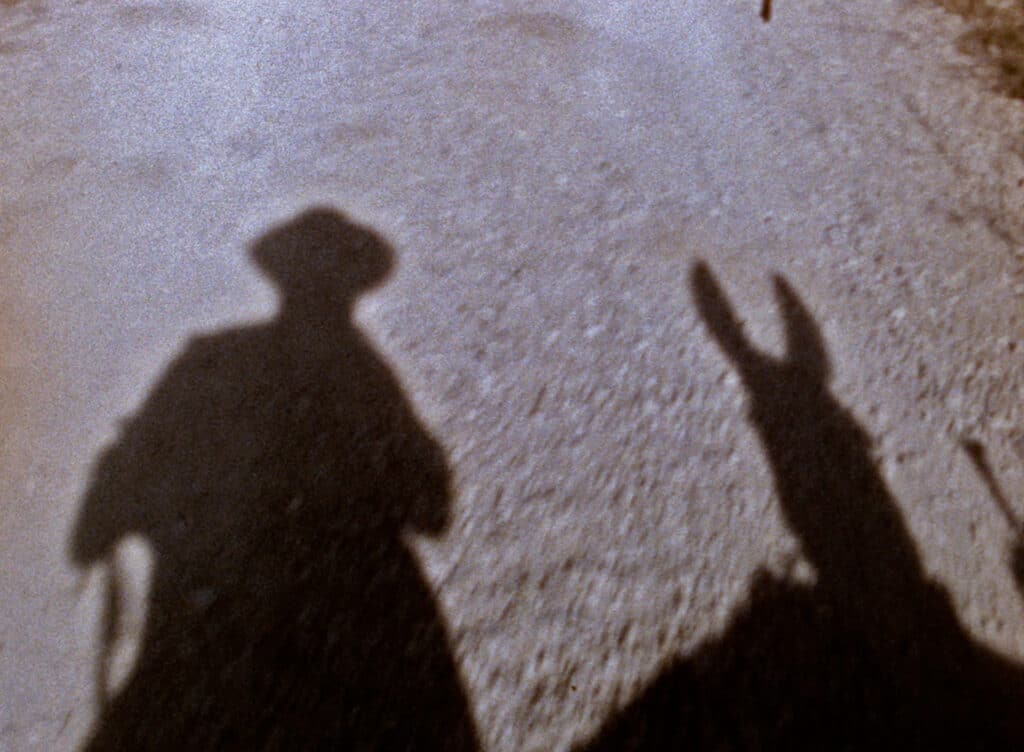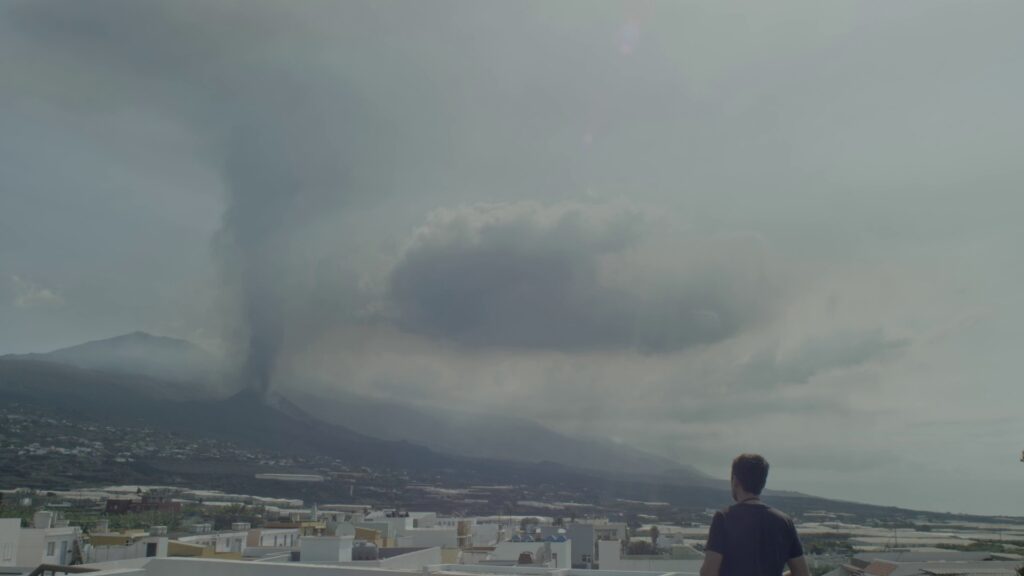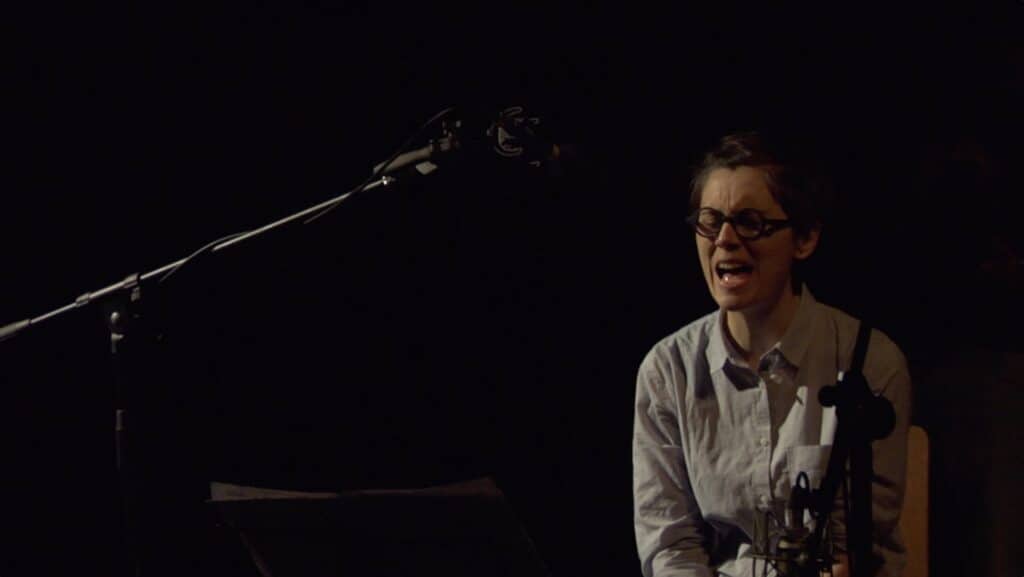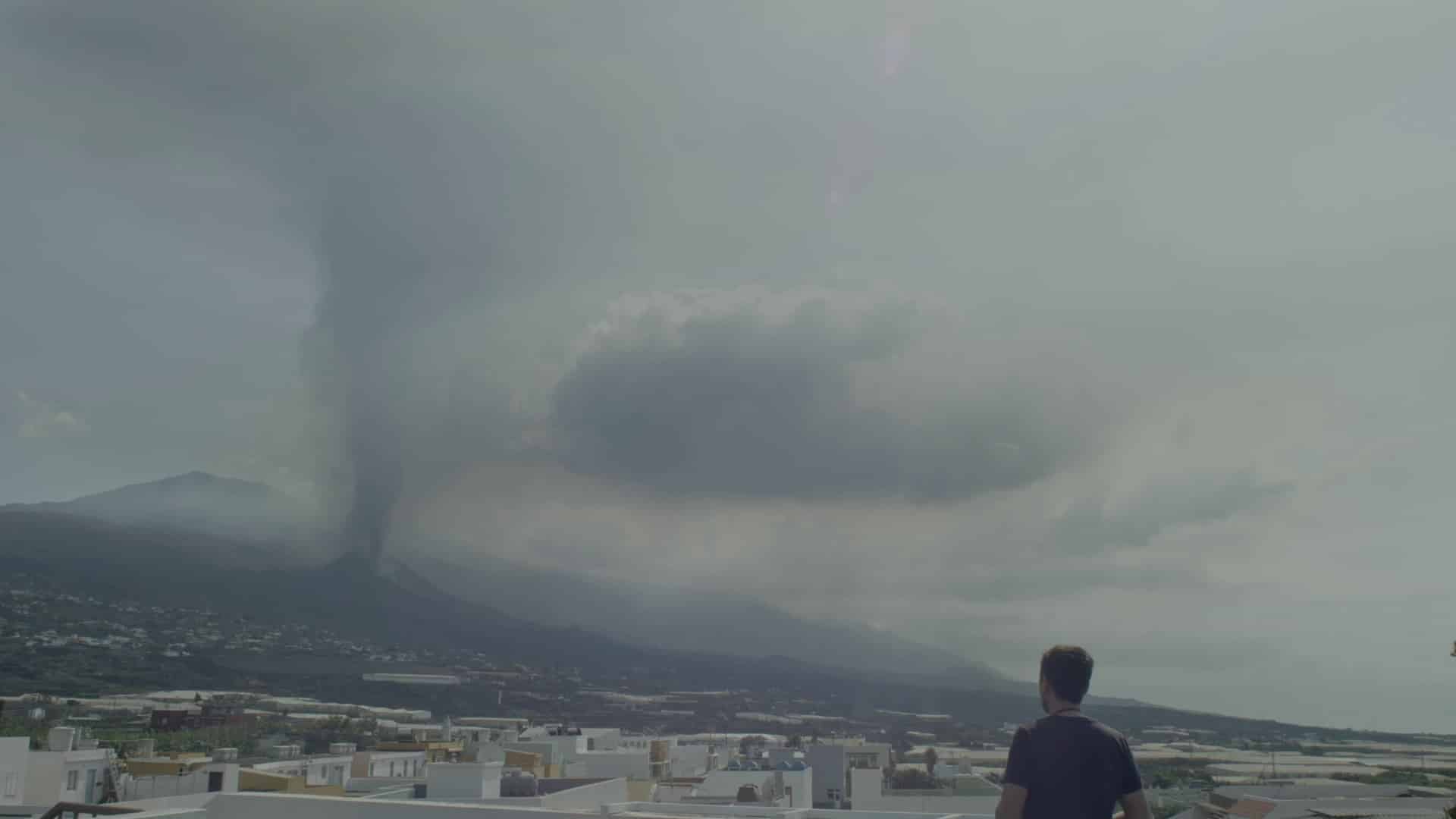Zinzindurrunkarratz
Oskar Alegria

The section dedicated to non-fiction cinema will program three Spanish feature films. Zinzindurrunkarratz, third feature film by Oskar Alegria (Emak Bakia baita, Zumiriki), summarizes in its title the idea it pursues: the role of sound in the construction of our memories and our memory. Zinzin is a valley where the wind blows lightly and its lyrics represent that sound in Basque language. Durrundurrun is a chasm without end, where a falling stone is lost in that long echo, and Kurruzkarratz, is the peak where lightning always strikes, with its roar and tear full of R’s.
The starting point is the project of a filmmaker to recover the transhumance path that the shepherds of his village, Artazu, used to take to the mountains, but he cannot find any living witness to show him the exact route. His idea is also to film it with his family’s old super-8 camera, but he discovers that, after 41 years without being used, it no longer picks up the sound. Oskar Alegria participates for the first time in Seminci after a career still brief but full of recognitions: he won 17 international awards in 70 international festivals with his first feature film, Emak Bakia baita, and won with his second work, Zumiriki, the New Waves award for best non-fiction film at the Seville Festival after previously premiering it in the Orizzonti section of the 76th Venice Film Festival.
An Inhabited Volcano
David Pantaleón y Jose Víctor Fuentes

Sound is also fundamental in An Inhabited Volcano, where Canarian directors David Pantaleón and Jose Víctor Fuentes relive the impact of the eruption of the volcano on the island of La Palma through the audio messages that a group of childhood friends shared in a common chat on Whatsapp. From those audios and with images of wild beauty, An Inhabited Volcano builds a unique chronicle about tragedy, friendship and the collective strength of the inhabitants of a land, who every now and then live with the hypnotic and devastating power of nature.
David Pantaleón (Rendir los machos) and José Víctor Fuentes (BKLYN 1121, A veces el amor) collaborate for the first time to portray the force of nature but especially the Canarian people, temperance, solidarity and daily concerns of a valley that is their home and is being devastated. The film, produced by Chukumi Studio and with the associated production of Los de Lito Films, Glow Films Entertainment and La Palma Spirit, and the distribution of Kino Rebelde, has had its world premiere at the international festival Visions du Réel (Nyon, Switzerland).
La estafa del amor
Virginia García del Pino

La estafa del amor, the second feature film by Virginia García del Pino (El jurado, Basilio Martín Patino. La décima carta), takes as its starting point the case of the ‘love swindler’, which serves as an excuse to deepen into the paradigm of romantic love. From a real workshop organized in Cineteca de Madrid, people of different creeds, sexual options and ways of thinking react to the reading of the script of a film about a guy who charmed women to swindle them.
Throughout this film-performance about love, some characters from the script burst into the room to explain the extraordinary (not necessarily positive) influence exerted by the ideal of romantic love. Produced by Pantalla Partida, Artefacto and Ferdydurke Films, La estafa del amor also reflects on the cinematographic fact, its capacity of influence and representation, the very need to make films and the way in which the media (cinema, TV, networks, etc.) configure and design in an extreme way our ways of loving, and its emotional, physical, social and political repercussions.



























![Logo Foro Cultural de Austria Madrid[1]](https://www.seminci.com/wp-content/uploads/2024/09/Logo-Foro-Cultural-de-Austria-Madrid1-300x76.jpg)








